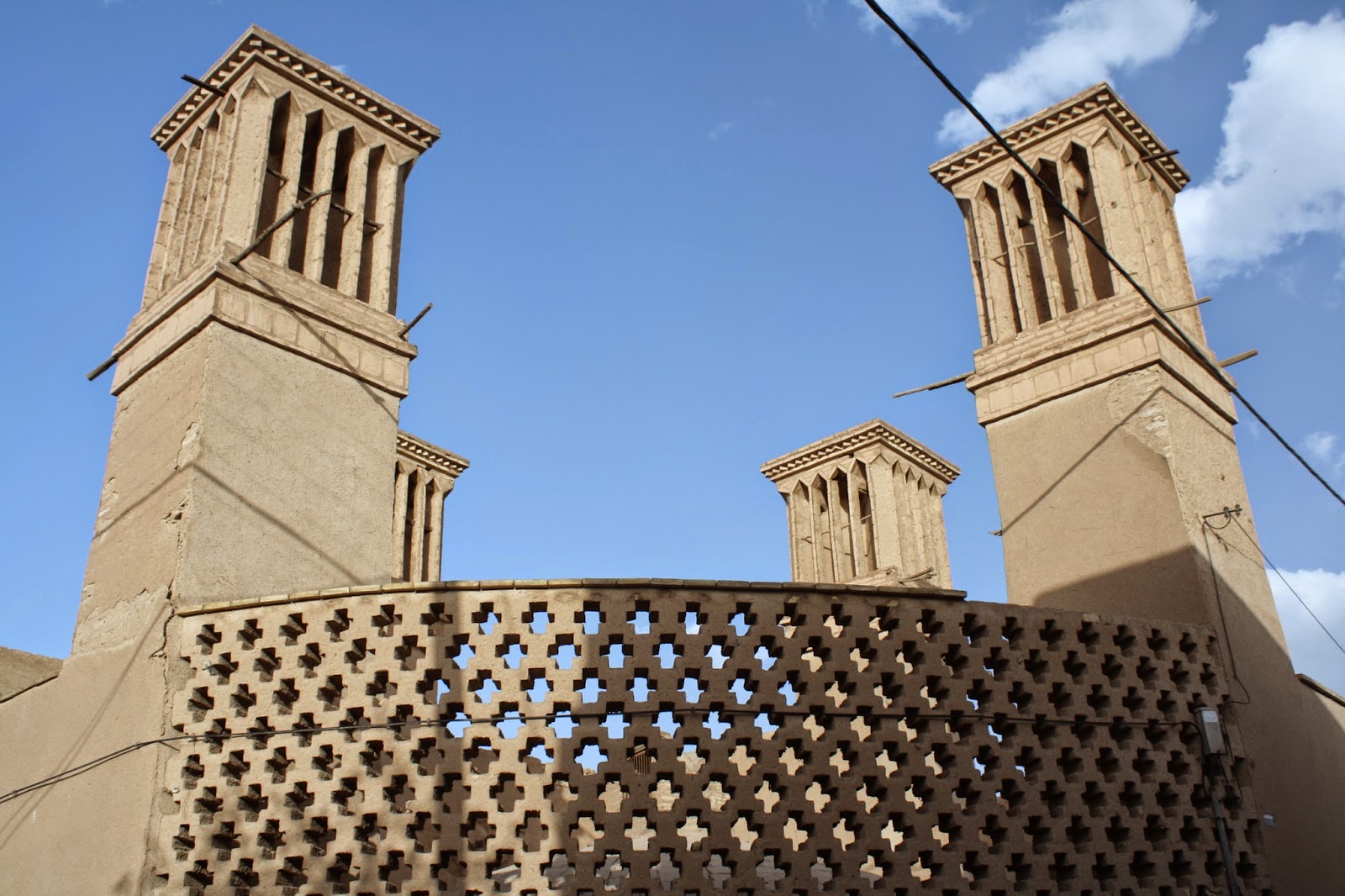Mashhad is Iran's holiest city. The shrine of Imam Reza, one of Shia Islam's twelve imams, lies in the heart of the city. It is a place of pilgrimage for the devout and a popular spot for young honeymooners who come for good luck. So when we arrive at Sonny and Maryam's place we are pleasantly surprised when they immediately propose to go for a swim and sauna. We've visited the shrine complex previously and it left us feeling a little, hmm, ho-hum I suppose. But the thought of having a swim is great. We are joined by a friend Mo, and pile down to the local sports complex, which looks rather plush. Is it open to the public? Yes. And is it run by the municipality? No. It's run by the Shrine. In fact, the Shrine runs Mashhad, it seems. It's a big business venture. The swim and sauna are great, good facilities and not too busy. The visit is marred by only one small faux pas on my part - getting changed in the open changing room is not the done thing here. Sonny calls across "Put some clothes on!" before laughing.
We are treated by Mo to juices afterwards. I opt for the local speciality - a milkshake made with cream, pistachio, honey and bananas. It's hard on the arteries. Mo is now living in New Zealand having emigrated there after meeting his American-Iranian partner through Couch Surfing. He likes the slow pace of things there. He is back to visit his family and we are invited over for tea. Later we get a chance to ask Maryam and Sonny about their cycle-touring experience in Turkey. They took off on a trip after being inspired by a young cycling couple who stayed with them. They are a young modern Iranian couple, vegetarians, and we wonder what life holds for them here. Sonny is frivolous and constantly joking - telling us that Ahmadinejad was a British agent sent to destroy the Iranian economy. Things are that bad - it has to be the fault of the British. Our stay here is brief and marred slightly by an unidentified illness that befalls me on the first night. I awake with intense pain just below my rib cage. In the morning Sonny kindly takes me to a local hospital where I am grilled first by a nurse and then a doctor. Organs are prodded to no effect. The doctor dismisses it as a 'cold on the stomach'. I am feeling better an not in any great pain now and feeling rather foolish. But a cold on the stomach? Perhaps this is a euphemism for 'time-waster'. Unfortunately the 'cold' lasts for the next week - keeping me awake at night but leaving me feeling fine in the day.
At a popular guesthouse we meet up with Gabor, Franzi and Jona who we last saw in Tehran. Franzi and Jona are still waiting to collect their Turkmen visa but Gabor already has his so we arrange to depart with him the next morning. Franzi and Jona hope to catch us up on the way to the border. After such a long time in Iran we are finally contemplating some serious cycling: the ride to the border followed by a five day dash across Turkmenistan and on to Bukhara in Uzbekistan, one of the greatest cities of the Silk Road. All in all it will be ten day's straight cycling. We go in search of food for the journey and are sadly disappointed with our findings. When we say goodbye to Maryam and Sonny he mentions something about 'positive energy'. We are thinking about the ride ahead and I am wondering about my internal organs. I hope we have enough positive energy to spare.















































